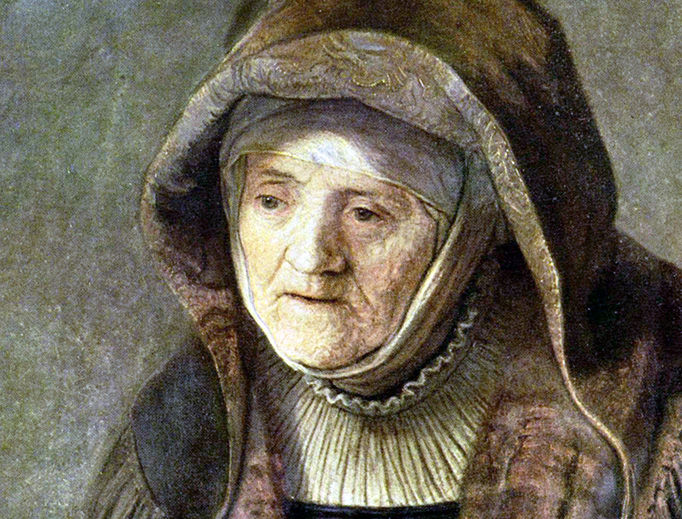So It Begins
- Rich Scheenstra
- Dec 26, 2021
- 4 min read
Updated: Dec 30, 2021
The Restoration. That’s what began at Christ’s birth. The good news of Jesus’ birth is part of the good news of the kingdom of God – God’s master plan to restore all things. And where does this restoration begin? Luke seems to suggest that it begins with the restoration of women to their rightful place as co-regents with men within God’s kingdom.
Throughout Luke’s accounting of Jesus’ life (the gospel of Luke) and the story of the early church (the book of Acts), there’s no escaping the fact that Luke gives a prominent place to the role of women in the unfolding of God’s purposes. In his Pentecost sermon after Jesus’ ascension, Peter quotes the prophet Joel:

In the last days, God says,
I will pour out my Spirit on all people.
Your sons and daughters will prophesy,
your young men will see visions,
your old men will dream dreams.
Even on my servants, both men and women,
I will pour out my Spirit in those days,
and they will prophesy. (Acts 2:17-18)
Before Jesus’ birth, Luke records two prophecies. The first is often referred to as Mary’s Song or the Magnificat, the second as Zacharias’ Song. Which is the better known? Mary’s. Overshadowed by the Holy Spirit, it is Mary’s faith that overshadows Zacharias' doubt. Joseph’s role is significant but relatively minor compared to Mary’s, and will eventually fade out altogether (likely because he died).
In today’s daily lectionary reading, the infant Jesus is brought to the temple for circumcision. Again we encounter two prophets, Simeon and Anna. Simeon bears witness to Mary and Joseph regarding the significant role their son will play in the salvation of all nations. But it is Anna, an 84-year-old widow, who becomes the one to witness to others about Jesus – “...she gave thanks to God and spoke about the child to all who were looking forward to the redemption of Jerusalem” – just as women would later be the first to bear witness to Jesus’ resurrection.
I find it interesting that the only pastoral husband-wife team mentioned in the book of Acts is soon referred to as Priscilla and Aquila rather than Aquila and Priscilla, seeming to highlight Priscilla’s gifts and leadership.
Part of the reason all this is significant for me today is because of a podcast series I’ve been listening to entitled The Rise and Fall of Mars Hill. I highly recommend it to all church leaders and anyone wanting to understand the celebrity culture found within contemporary Christianity. It offers keen insights into why and how many pastoral leaders have been fired or forced to resign the last several years. The narration is superb and the reporting evenhanded. It focuses on the rise and fall of Mark Driscoll, the founder of Mars Hill Church in Seattle and the Acts 29 church network, but references other megachurches and church leaders as well. I’ve found it to be spellbinding (and often convicting).
The last episode I listened to focused on the highly sexualized nature of Driscoll’s preaching. On the one hand, Driscoll challenged men to man up and take responsibility for providing for their families and for protecting and cherishing their wives. But he also told women that their primary responsibilities were to raise lots of kids and meet the sexual needs of their husbands. They also needed to stay home to do those things. And as far as attempting to meet her husband's insatiable sexual needs, what was expected and demanded left many if not most women feeling degraded and ashamed.
This is what happens when your gospel is too small. In my last post I talked about a gospel that demands too little from us. Christian history is also strewn with examples of so-called radical attempts to live out the gospel that actually fell far short of Jesus’ example and message.
Which brings me back to God’s Restoration Project. The story of the Bible begins with both man and woman made in God’s image, made to reign as co-regents and co-high priests (i.e. a royal priesthood) in God’s cathedral/kingdom. When the woman is created as a “helpmate” in the second creation account, the Hebrew word suggests a partnership rather than Eve’s being a mere assistant or helper. (The only other time this word is used in the Bible is to describe God.)
From the beginning of the Bible, what we learn about God’s power is that it empowers others. It’s willing to share power. And its purpose is to serve, not to be self-serving. Everything about Jesus’ birth, his teaching, his ministry and his death point to this countercultural and counterintuitive understanding of power.
And so on this first day after Christmas I want and need to repent. I ask God to rid my heart and my manhood of all that has been prideful and selfish, and to create in me a pure heart towards the love of my life, allowing and empowering her to be all that she was designed and commissioned to be by her Creator and now Savior. I feel so grateful for her gifts, and for her courage in keeping me accountable for becoming all I can be in Christ. I'm also grateful for all the women, too many to name, whose leadership, scholarship, preaching, writing, pastoring, parenting, caretaking, hospitality and artistry have enriched my life more than I can tell. I am in your debt, as I am to Mary and Anna and Priscilla.



Comments